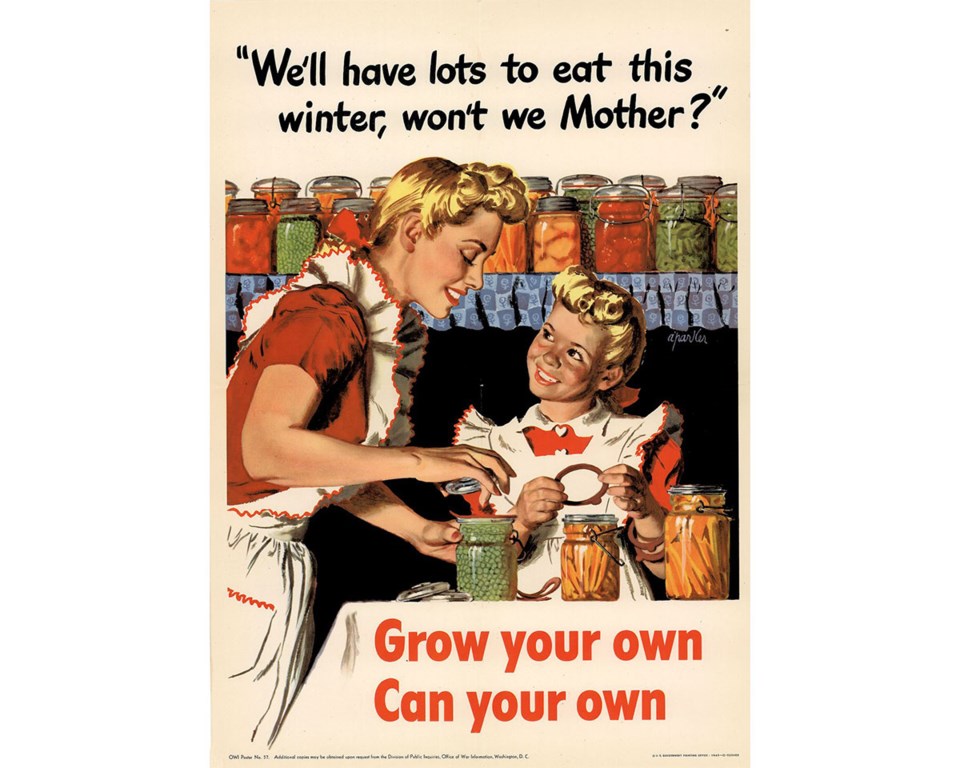I have been so busy getting all of our garden beds ready for planting. With the May long weekend coming up, this is a traditional time to plant tender annuals, perennials and vegetables.
So we are at the beginning of our growing season and with the coronavirus lockdown, there is a silver lining in having us all staying close to home.
The threat of food shortages also has many folks thinking about finally growing their own food.
Not only does gardening gives us back our sense of control over our lives,.it is very satisfying to grow our own nutritious food. We are also benefitting from getting exercise outdoors, while self-isolating. We are also helping relieve our community’s food supply system and sharing our gardening knowledge with our children. At the very least, it is a wonderful distraction in a very restrictive environment.
“Stick it to the virus garden”
I recently read a great article in the Washington Post where the author, Adrian Higgins, refers to his garden plot this year as “stick it to the virus” garden.
Novice gardeners are jumping into growing their own food this year, while experienced gardeners are more focused on what they grow and even creating larger beds. Seed companies are seeing an unprecedented increase in levels of demand (West Coast Seeds can’t keep up).
During both World Wars, the establishment of victory gardens became a way to secure food at a time when food supply was scarce. Citizens were encouraged to grow their own food and even share with their neighbours, as most of the food supply trucks were pulled off to support the war effort.
General principles for growing a self-sufficient garden
-
Choosing a site- living in an urban centre usually limits the size of suitable land to grow a totally self-sufficient garden. Some of our more seasoned gardeners with ample land are able to grow enough food to can or pickle their harvest. Many of us with small gardens are delighted to enjoy seasonal harvesting of our favourite food. If you are new to gardening it is best to start small so you are not overwhelmed.
Gardening in a land-poor range (for our apartment dwellers), could even involve growing sprouts on your windowsill. Growing herbs in containers will spice up any dish. If you have a tiny patio on a tiny backyard, you can grow a variety of greens and herbs.
One space to find real estate to create a garden is the lawn or a part of it. So many of us have been fighting the chafer beetle larvae. This may be the year to convert some of your grass into growing fresh food rather than food for raccoons, skunks and crows! - Sunlight - Most of the vegetables we grow need at least 6 hours of direct sunlight daily, typically afternoon light. Some leafy greens and herbs will take partial shade.
- Water- You will need easy access to water. During the heat of the summer, plants may need watering daily. Ensure your growing beds have excellent drainage. Remember when watering your plants, do not water the leaves, as this can promote fungus and other diseases.
- Soil - Healthy garden soil is usually built up with additions of compost, leaf mold and other organic material before planting a garden. Access to off-site soil amendments can be tough this year. Add in any fallen leaves from last fall to your garden. Start a compost pile.
If you are just starting out with your very first food garden, just plant what you like to eat. Start small and make sure to read the labels. Some of our local nurseries provide small starter vegetable plants or you can direct sow seeds into your garden.
So before the long weekend arrives, get your soil ready, think about the size of your garden, how much continuous sunlight the space gets in a day, determine what you want in your garden and what will fit in your space. If you have a small space, probably planting corn or pumpkins may not work.
Have fun and enjoy your “stick it to the virus” garden.
Lynda Pasacreta is the current president of the Richmond Garden Club and is involved in many gardening projects around Richmond. As the gardening columnist, she educates garden enthusiasts in the community to follow organic and environmentally friendly garden practices.



